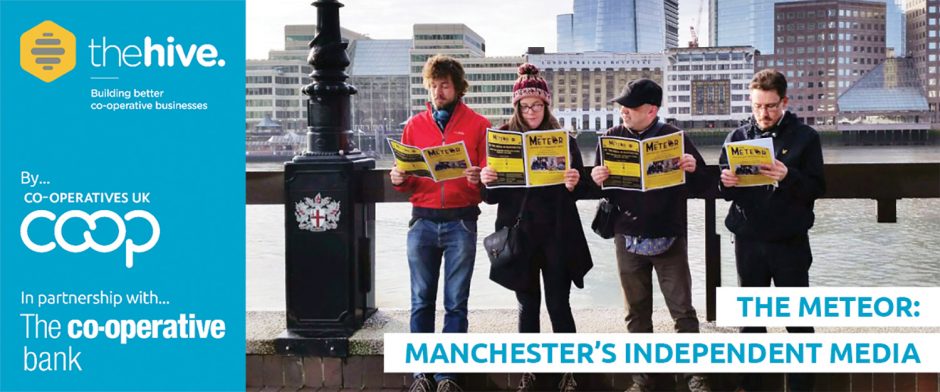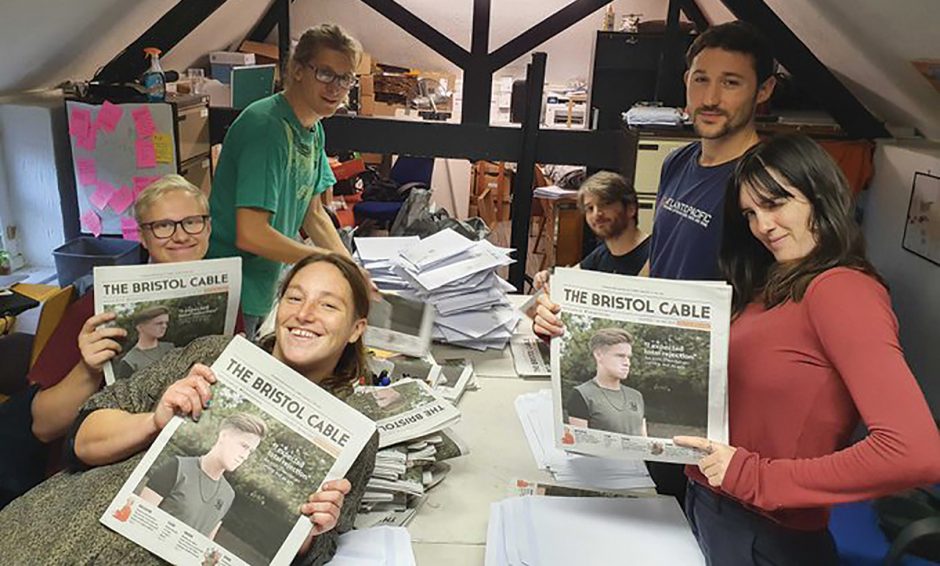“A good newspaper,” said Arthur Miller, “is a nation talking to itself.” It holds conversations, it challenges authority and champions communities and society; it provides commentary and offers spaces to be heard.
There has been a gradual decline in newspaper sales since the peak in the mid-1950s, but that rate has accelerated alarmingly over the last 20 years. In the 50s, television replaced newspapers as most people’s source of daily news; the arrival of the internet and multimedia news platforms in the 1990s cut it further. But the parallel problem that emerged with the declining number of newspapers was the declining number of journalists – particularly those with local and regional knowledge. If papers weren’t cut completely, they were consolidated. In some cases, journalists producing ‘local’ news are often based in production hubs hundreds of miles away, and lack the local knowledge or context to give a truly balanced account of events. Nor have they time to craft a rounded story, investigate in depth or hear from those all-important local voices.
“Almost every newsroom has been cleared of at least half, and sometimes more, of its journalistic staff,” said Chris Morley, the NUJ’s Northern organiser, in 2013.
He recounted how his first paper, the Walsall Observer once had a 13-strong journalistic staff. But in 2013 “Walsall, a metropolitan borough of 350,000 people [did] not have one professional journalist working there”. The paper has long since closed.
Social media means individuals have their own platforms to create ‘news feeds’ for friends and family – and the public – to consume, and this has its own social and cultural repercussions. In particular, the decline of local media can have a knock-on effect for civic engagement: one report has linked the closure of titles to reduced election turnout.
Some of the principles that co-operatives hold dear could also apply to journalism – in particular principles 4, 5 and 7. Journalism, however it is published or broadcast, should be autonomous and Independent. It should educate and inform. It should be concerned about the communities it rights for and about.
Too often this is not the case. One of the loudest criticisms is around trust. In 2017, the European Broadcasting Union research found that people in the UK trusted the written press less than television and the radio. It also trusted the press least of any European country, by a considerable margin.
Regaining community trust
A few years ago, Co-operatives UK published a pamphlet which argued that the crisis in the media – both financial and ideological – was a moment of opportunity to bring co-operative structures and business models to the sector. Through this, co-ops could “better shore up the social and democratic role of the media through a business model based on using commercial success to provide social benefit.”

The reason for this, the pamphlet said, is that co-operatives already have the key requirements for media organisations. They are trusted businesses, with a reputation for fairness; they are resilient; and they are accountable to their members. “Journalist-owned co-ops can ensure decent employment with news ethics less subject to being bent by unscrupulous owners or management,” it said, “whilst reader-owned enterprises can exercise real control over the direction their news media takes above and beyond the binary choice to consume or not consume.”
Today there are several examples of well run, co-operatively owned media – from big hitters like US new agency to Associated Press to the West Highland Free Press, a local paper based on the Isle of Skye. And there are radical campaigning titles such as the Morning Star and STRIKE! magazine.
The Bristol Cable and Meteor Manchester cover local news in their own cities; and as they are co-ops, their independence means they can cover the stories and issues that are genuinely important to their members, who are based in the communities they serve.
Launched in 2014, the Bristol Cable is a member-owned news co-op with a print run of 30,000 copies. A member of the Global Investigative Journalism Network, it has quickly established an enviable reputation for its reporting – with editorial direction guided by its membership.

Stories include investigation of ownership of property in the city by companies based in offshore tax havens; police use of surveillance devices to monitor mobile phones; and modern slavery abuses by a local ice cream businessmen – which in February this year won Press Gazette’s Local Journalism Award.
Since 2017 The Meteor in Manchester – a not-for profit “alternative, radical, community-based publication” – has been reporting on issues such as homelessness, the housing crisis, offshore ownership of property, climate justice, refugee/asylum issues and property development in the city centre. Its website says the co-op model is a natural fit for this work.
“The time is right to challenge the dominant form of media ownership in Manchester and seize the opportunity present in this crisis to provide a democratic media that will best serve the interests of the communities we report to,” says the organisation. “The seven co-operative principles, that give every co-op a sound ethical foundation, are a good fit for The Meteor and Manchester, a city that has a strong history in fighting for a fairer and more socially just world.”
Co-operative or employee-owned models have long had an appeal for journalists looking to evade the influence of wealthy owners. One high-profile attempt to achieve this was led by Sir Harold Evans, who died last month.
As editor of the Times and Sunday Times he led the campaign for families affected by the thalidomide scandal to get government compensation, earning him an enduring reputation for crusading journalism. He also led an attempted staff buyout of the titles. Sadly this did not succeed, leaving the papers in the hands of Rupert Murdoch – whose editorial interference prompted Sir Harold’s eventual resignation saying he was “absolutely disgusted, dismayed and demoralised by living in a vindictive, punitive atmosphere”.
While co-operation can certainly help develop independent media institutions, it is not always the right answer. Globally, media co-ops have not been able to offer members a real return, and there have been plenty that failed because of the rise in digital media and the ease of access to information. In Canada, staff at failing Canadian newspaper business Groupe Capitales Médias (GCM) launched a fundraising campaign to save their titles as co-ops. Covid-19 hit just as the co-op got up and running and it has now ceased print editions and gone digital only (this was the long term plan, but the pandemic accelerated this as ad sales fell). The media co-ops that are successful have a core, committed membership base and a genuine purpose that chimes with those members.
Co-op journalism about co-ops
There is a difference between media about cooperatives and cooperatively owned media. Co-op News is fairly unique in that it does both. But co-operative journalism (about cooperation) is very established in several countries, including Nepal and India, and there are many podcasts and radio shows about co-ops too.
The News is published by Co-operative Press Ltd, which is owned by a combination of individual and organisational members. Early on, Co-operative News focused on the UK movement, and its retail societies.
But Co-op News has changed as the UK – and global – movement has evolved. Today we publish both print and digital editions and provide daily updates on www.thenews.coop, where over half of online readers are from outside of the UK. One of our tasks at the moment is to make sure that this internationalism is reflected in the membership and governance of the society.
The co-operative movement is often accused of being too insular and inward-looking – but it is also important that co-ops know about and learn from their co-operative peers.
Through independent reportage on the movement, Co-op News provides a space for expert, institutional analysis and conversations that are also relevant to the wider global contexts of sustainability, economic alternatives and the future of work – particularly in light of the Covid-19 pandemic.
2021 will be our 150th anniversary year, and we look forward to continuing to adapt and develop, while keeping high-quality, expert co-operative journalism, about our global co-op community, at our core.